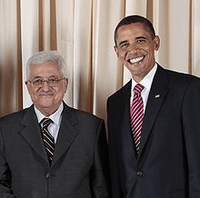In an effort to defuse the short-term crisis generated by the Palestinian push for United Nations recognition of a Palestinian state this week, French President Nicolas Sarkozy has offered a compromise proposal: a "precise timetable" of negotiations under the aegis of the Quartet that would produce a final status agreement between Palestinians and Israelis in a year's time. The proposal's utility as a practical means of generating an actual solution is minimal, but it could represent a face-saving off-ramp way for the U.S. from the current confrontation.
On paper, setting deadlines for negotiations makes sense. But in the real world, such benchmarks are irrelevant if there are no consequences for not meeting them. In negotiating with Serbia over Kosovo's status, for instance, the U.S. made it clear that if the talks failed to reach a final-status agreement within the time alloted, the United States would be prepared to unilaterally recognize an independent Kosovo in February 2008, even in the absence of any agreement with Belgrade. Is Washington willing to apply the same principle to Israel? With U.S. President Barack Obama preparing to head into a very difficult re-election campaign, the answer is: not likely. Conversely, if the Palestinians decide not to accept compromise solutions on the status of Jerusalem or the return of refugees within the timetable advanced by Sarkozy, will they have forfeited statehood for all time? Again, the answer is: probably not.
The problem is that, as it now stands, the Sarkozy proposal contains no mechanism to compel both sides not only to come to the table, but to agree to a compromise. As Steve Clemons summed it up, "Both Israel and Palestine cannot achieve peace on their own. Their internal domestic institutions and political order cannot take the domestic political stress of delivering on a deal." Yet, as Clemons continues, at present there is no "gaiatsu" (a Japanese term for foreign pressure) that would enable Palestinians and Israelis to transfer the blame for unpopular compromises to the international community. Certainly, the United States has not advanced any such proposal, even though, as the Christian Science Monitor opined, "A specific U.S. plan would help each side more easily persuade its people to support a final deal against attacks by their respective extremists."

